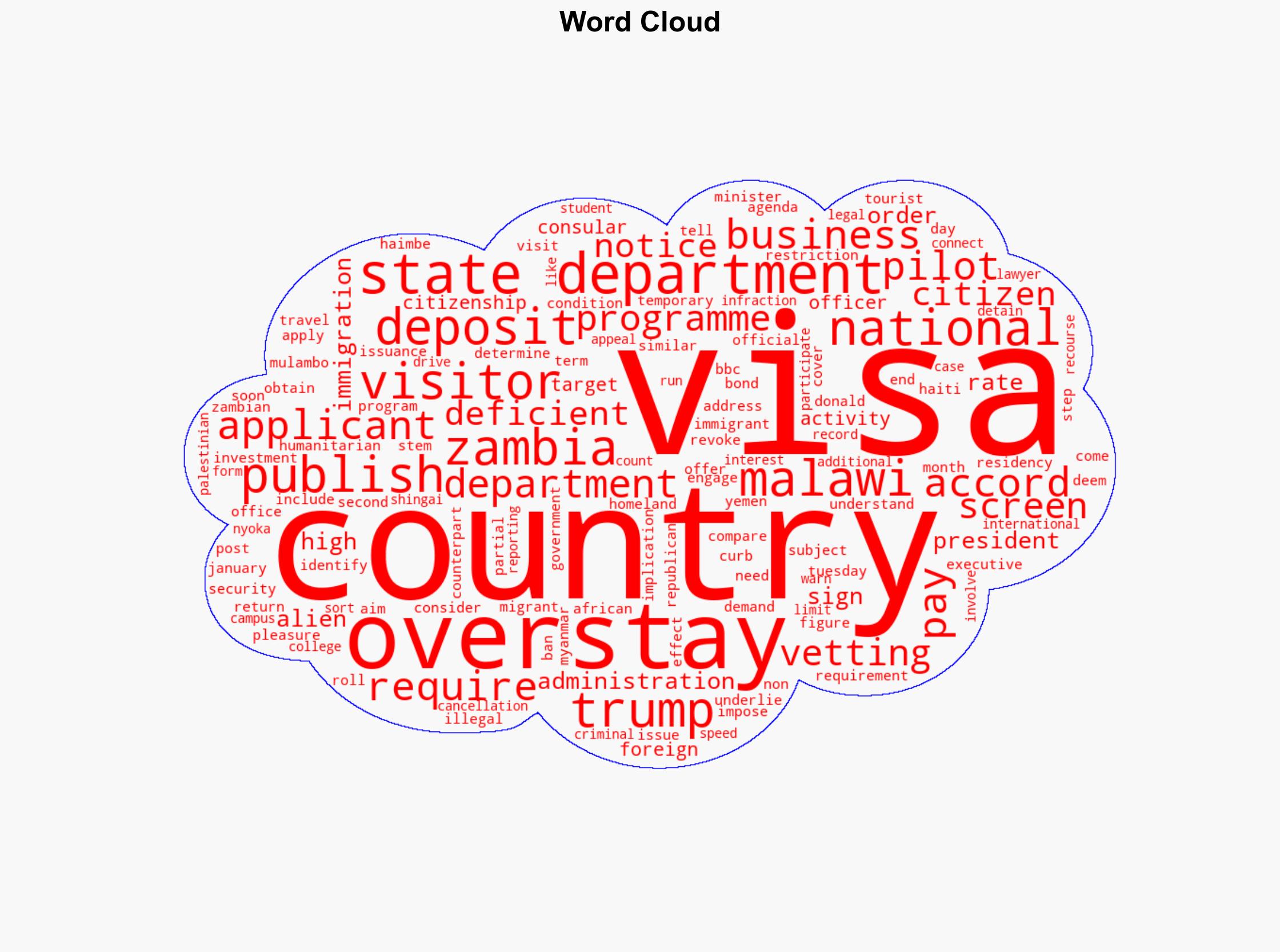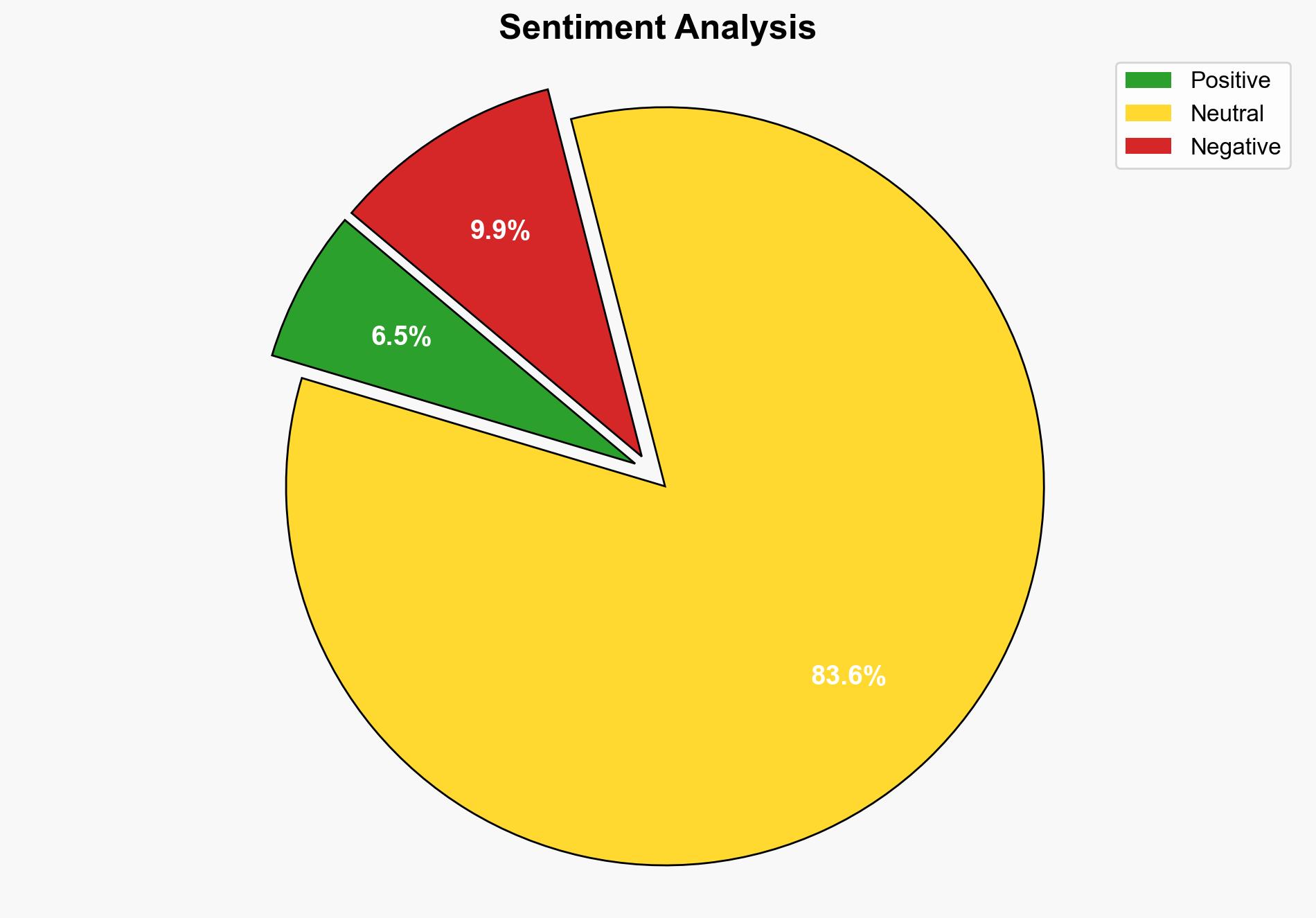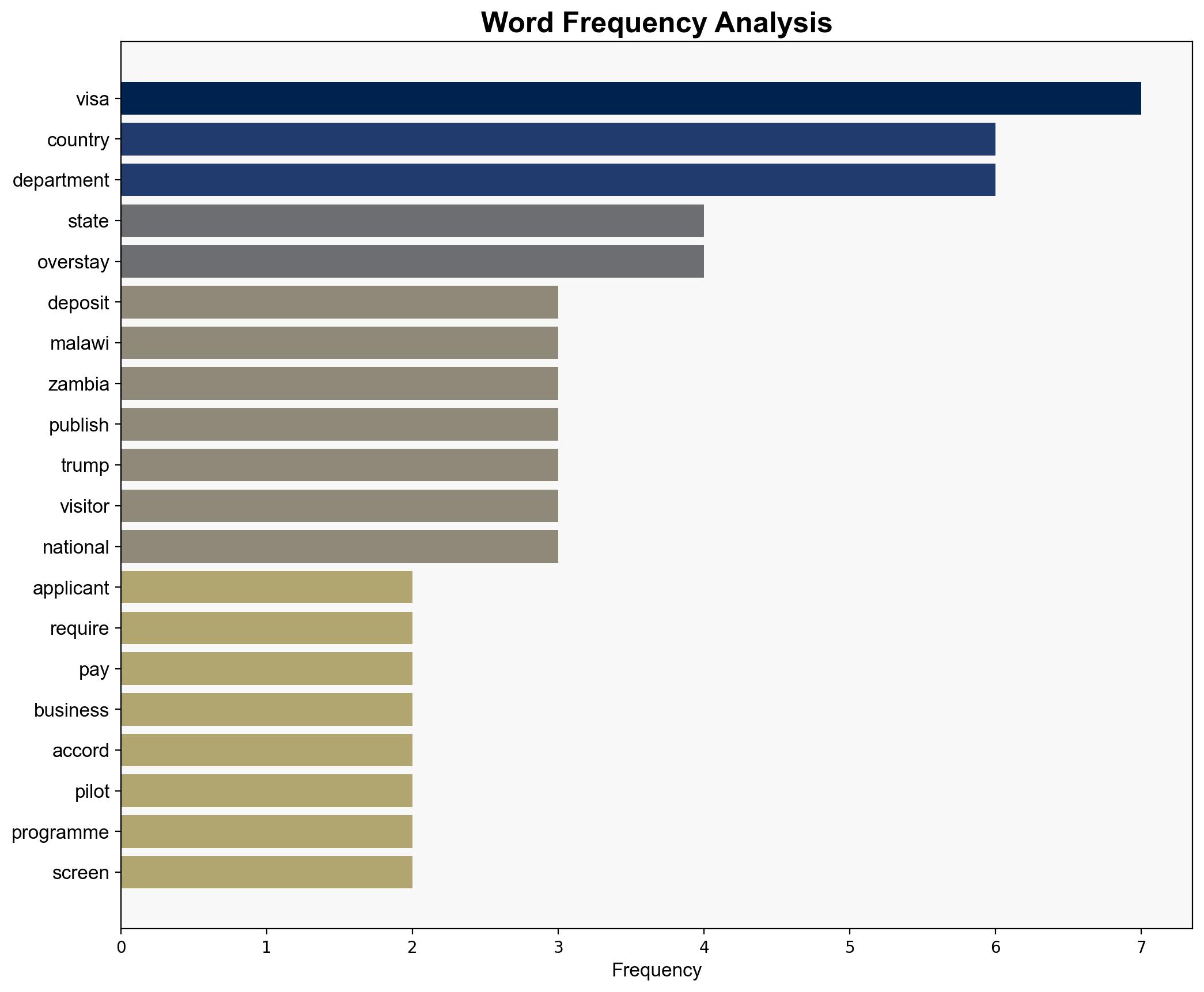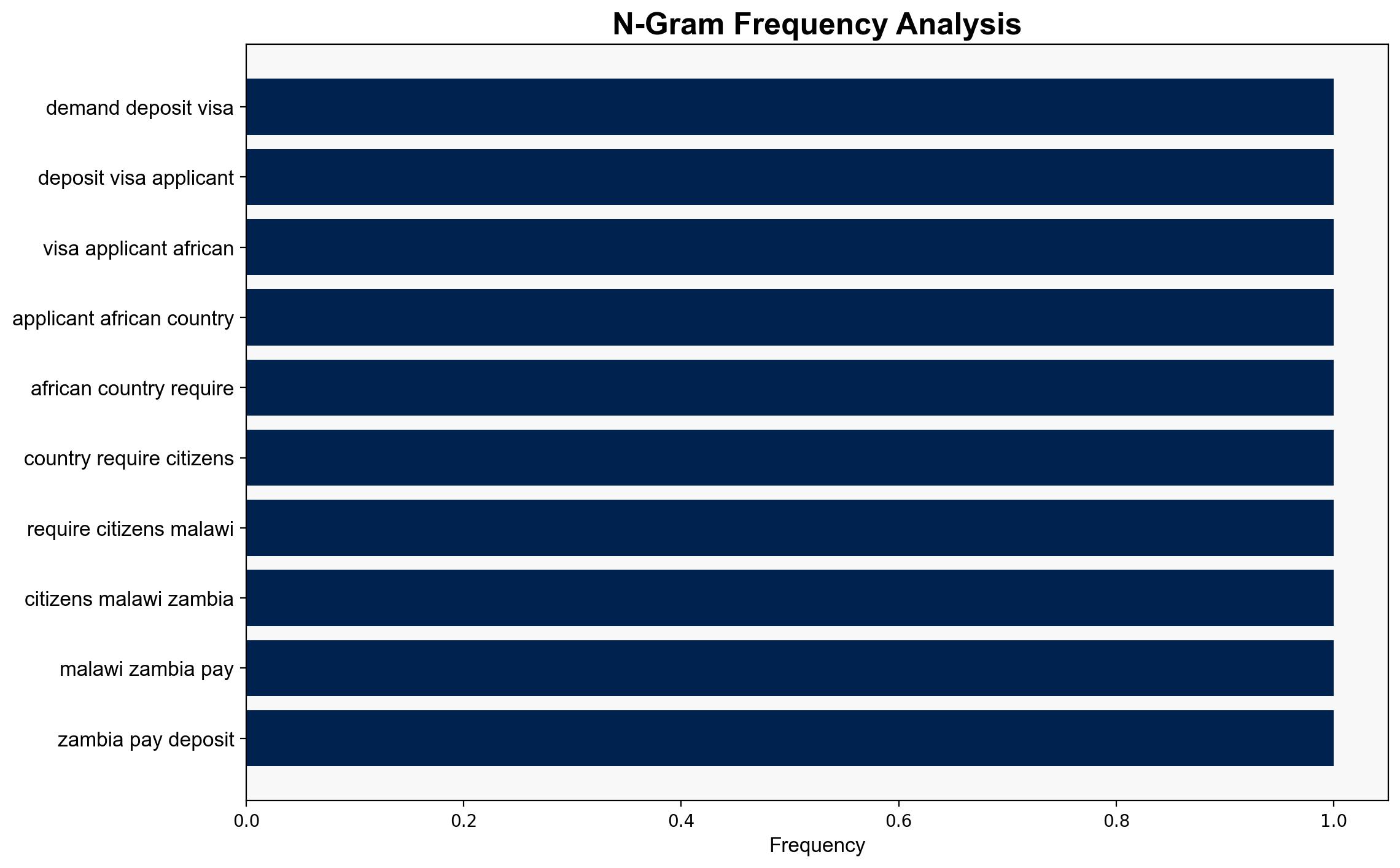US demands 15000 deposit for visa applicants from two countries – BBC News
Published on: 2025-08-05
Intelligence Report: US demands $15,000 deposit for visa applicants from two countries – BBC News
1. BLUF (Bottom Line Up Front)
The US State Department’s demand for a $15,000 deposit from visa applicants from Malawi and Zambia is likely a strategic move to curb visa overstays and align with broader immigration control policies. The hypothesis that this is primarily a deterrent against high overstay rates is better supported by the available data. Confidence in this assessment is moderate due to limited transparency on the criteria used for selecting these countries. Recommended action includes diplomatic engagement with affected countries to mitigate potential diplomatic fallout and ensure clear communication of policy intentions.
2. Competing Hypotheses
1. **Hypothesis A**: The deposit requirement is primarily intended to reduce visa overstays from Malawi and Zambia, aligning with broader US immigration policies.
2. **Hypothesis B**: The deposit requirement is a politically motivated action aimed at signaling a tough stance on immigration, irrespective of actual overstay statistics.
Using ACH 2.0, Hypothesis A is better supported by the data, particularly the mention of high overstay rates and deficient vetting processes. Hypothesis B lacks direct evidence but cannot be entirely dismissed due to the political context.
3. Key Assumptions and Red Flags
– **Assumptions**: It is assumed that the high overstay rates are the primary driver for the policy. It is also assumed that the policy will effectively reduce overstays.
– **Red Flags**: Lack of detailed criteria for selecting Malawi and Zambia raises questions. The absence of similar measures for other countries with high overstay rates suggests potential inconsistencies.
– **Cognitive Bias**: Confirmation bias may lead to overemphasizing the alignment with broader immigration policies without considering alternative motivations.
4. Implications and Strategic Risks
– **Diplomatic Risks**: Potential strain on US relations with Malawi and Zambia, possibly affecting broader regional cooperation.
– **Economic Impact**: Could deter legitimate business and tourism, impacting economic ties.
– **Geopolitical Dynamics**: May influence other countries’ perceptions of US immigration policies, affecting global diplomatic relations.
5. Recommendations and Outlook
- Engage in diplomatic discussions with Malawi and Zambia to clarify the policy’s intent and address concerns.
- Monitor the policy’s impact on visa overstay rates and adjust strategies accordingly.
- Scenario Projections:
- Best Case: Policy effectively reduces overstays without significant diplomatic fallout.
- Worst Case: Policy leads to strained relations and reduced cooperation with affected countries.
- Most Likely: Initial diplomatic tensions followed by gradual adjustment and compliance.
6. Key Individuals and Entities
– Mulambo Haimbe (Zambia’s Foreign Minister)
– US State Department
– Department of Homeland Security
7. Thematic Tags
national security threats, immigration policy, diplomatic relations, regional focus





